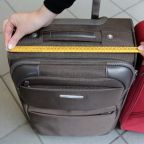
5 Crucial Summer Travel Tips Whilst Driving: Managing Temperature and More
With global temperatures expected to soar again this year, it’s important to take the necessary precautions before you hit the road to ensure a safe and comfortable driving experience.
We’ve listed a few simple steps to follow so you can enjoy a hassle-free driving experience throughout the summer of 2023.
How was last year’s temperature damaging to the UK?
2022 saw the highest temperatures that the UK had ever seen, reaching 40.3C in Lincolnshire on 19th July.
The extreme heat caused the Met Office to issue its first-ever red warning and saw the London Fire Brigade declare a major incident following a huge surge in blazes across the capital.
The hot temperatures were challenging for many, especially for nature and wildlife. Habitats were affected by wildfires and butterflies, birds and bats were caught out by the summer droughts.
What’s the expectation for 2023?
It’s said that this year is set to be another scorcher, with heatwaves expected to hit all areas of the country this summer. Whilst 2022 was the hottest year on record, 2023 could give it a run for its money.
Due to global warming, the average global temperature has now risen by around 1.2C. This will likely have an effect on climate change itself, with many seasonal models predicting scorching temperatures around the world this year.
As the UK isn’t always well-equipped to deal with such high temperatures, it’s important to be proactive and carry out necessary precautions, especially whilst driving.
Check the cooling system
Your engine coolant should have the appropriate levels if your engine is working properly and should rarely need replenishing. Be sure to check the levels underneath the bonnet by ensuring the coolant is between the minimum and maximum markers.
Air conditioning
In high temperatures, the air conditioning in your car will be your best friend. Before summer hits, ensure your air conditioning system has been checked or serviced, as it could need an aircon regas.
Hydration
Be sure to keep a bottle of water with you at all times as it’s incredibly important to stay hydrated whilst on the road, especially during long drives.
Avoid driving during peak temperatures
If possible, avoid driving during the hottest parts of the day. The UV rays are at their strongest between 11am and 3pm.
If you are driving during these times, be sure to wear SPF as the sun can still hit you through your car windows. Sunburn can cause severe headaches, which could distract you whilst driving.
Keep an eye out for weather alerts
Before your journey, check the Met Office for any alerts or heat advisories so you can decide whether your journey is essential or not.
















